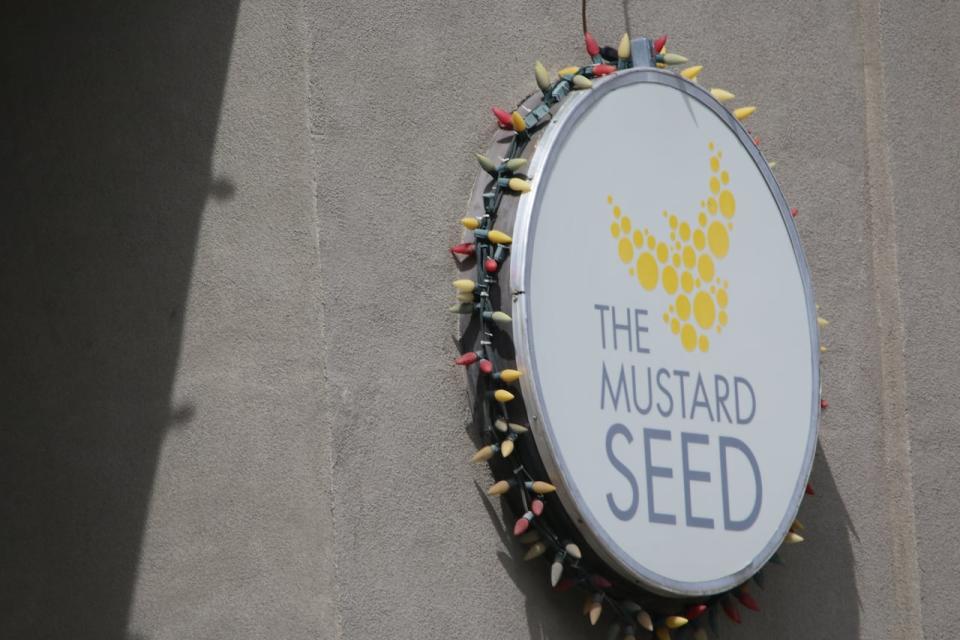Face of homelessness changing, according to Calgary front-line workers

Calgary outreach worker Chaz Smith and his team of volunteers have been distributing food, clothes and referrals for services to the city's unhoused for nine years.
The founder of BeTheChangeYYC says most of those facing homelessness during that time have been Caucasian or Indigenous.
But these days, he's noticing more newcomer faces.
"It's very easy to spot newcomers because the accent, the language barrier are very real.… I feel so bad folks are coming here from all over, and then they find that they can't afford any housing," said Smith.
He shares a story about a woman from Pakistan he met last week on a downtown CTrain platform who was crying because she had no where to go.
Smith said they eventually got her to a safe place where she could receive some help.
He's now hoping to raise more awareness so that more immediate housing solutions can be provided for newcomers, immigrants and refugees, who struggle with language barriers, no support systems and no understanding of how to navigate the system.
"I think that it's sad that we've sold sort of like this Canadian dream and we're not able to fulfil our obligation to these folks," said Smith.
Immigration waves
Kelly Ernst with the Centre for Newcomers says between the sustained influx of immigrants and refugees over the past couple of years and the rising cost of living and lack of affordable housing, newcomers are struggling to find housing in Calgary now more than ever.
"People will literally arrive at our centre with suitcases and say 'I need a place to live,'" said Ernst, chief program officer for the Centre for Newcomers.
He says the centre offers a diversion program aimed at keeping people off the streets. But he says it's been oversubscribed this year and the centre is at risk of running out of funds ahead of schedule.

Kelly Ernst with the Centre for Newcomers in northeast Calgary says "people will literally arrive at our centre with suitcases and say 'I need a place to live.'" (Dan McGarvey/CBC)
"Our numbers are up significantly," said Ernst.
He says Calgary is also becoming a magnet for recently arrived immigrants who found life in Toronto or Vancouver too expensive.
"We can't say that this is really one particular refugee wave or one particular immigration wave that is hitting us. It's coming from sort of all angles," said Ernst.
Ernst says the problem refugees don't receive the same level of government support, at least not initially, compared to economic immigrants.
"But very often they're the most needy people when it comes to needing services and assistance to get resettled," said Ernst.
More refugee clients
The Mustard Seed says it's seeing unprecedented numbers of clients arriving straight from the airport as refugee claimants this year.
"We're seeing it in both our 40-bed women's shelter and our 370-bed shelter down in the Foothills area," said Samantha Lowe, senior director of shelter operations for The Mustard Seed.

The Mustard Seed says it's having to pivot operations and navigate federal programs to help serve an increasing number of refugee claimants in its shelters. (Monty Kruger/CBC)
Lowe says they're arriving from all over, including Ukraine, Kenya and Uganda.
As a result, she says, staff are having to pivot operations to accommodate the new needs.
Lowe says the shelter is accustomed to assisting Canadians living in poverty by accessing provincial supports.
And, she says, it has done some work with refugees, but not to this degree.
"We're increasing our breadth of knowledge, our breadth of services.… Navigating the federal system is something that we're having to increase our knowledge of to serve this changing face of homelessness that we're seeing," said Lowe.
But Lowe says the need is not just changing, its growing.
In the long term, the Alberta government has committed to investing $9 billion with its partners to build 25,000 more affordable housing units by 2031 — an increase of more than 40 per cent.
But advocates say they need a short-term solution, too, such as increasing the amount of designated shelter space and hotels offered to newcomers when they first arrive.
Smith agrees.
"This is something we really have to talk about because this is unacceptable," said Smith.


